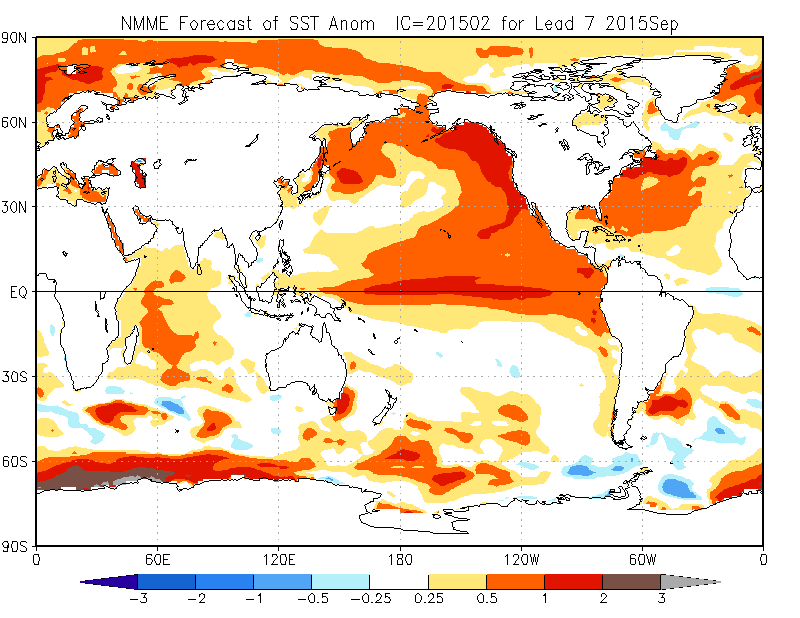First, Slate's Eric Holthaus explains the blob's connection to global warming:
Besides El Niño, a more worrying, longer-term trend is also taking shape. The Pacific Decadal Oscillation (PDO) is a decades-long periodic warming of the Pacific Ocean that tends to favor bursts of accelerated global warming. As I wrote last October, the Pacific appears to be in the midst of a shift into a new warm phase that could last 20 years or so.CNN's story never mentions global warming - in fact, just when it feels like they're about to, the story abruptly ends. "But other scientists are saying it's more than that," says Jennifer Gray - then it cuts to black. No explanation, CNN just leaves it there.
The PDO—or, “the blob” as it’s been referred to recently—is starting to freak out some scientists. There are emerging signs of a major shift in the Pacific Ocean’s food chain, including a dearth of plankton, tropical fish sightings near Alaska, and thousands of starving sea lion pups stranded on the California coast. As Earth’s largest ocean, what happens in the Pacific affects the weather virtually planet-wide, and that means an “imminent” jump in global warming may have already begun—spurred on by the PDO.
The PDO has skyrocketed to record-high monthly levels over the past four months. In fact, there have only been four other similarly warm four-month bursts of the PDO in the last 115 years (in 1940, 1941, 1993, and 1997). A quick look at the historical record (for both 15 years prior to and 15 years after the bursts) shows that global temperatures rose at twice the rate of the 20th century average immediately after these bursts.
Combined with the overall long-term warming trend from climate change, the emergence of the PDO warm phase means the current state of the world’s oceans has little precedent.


No comments:
Post a Comment